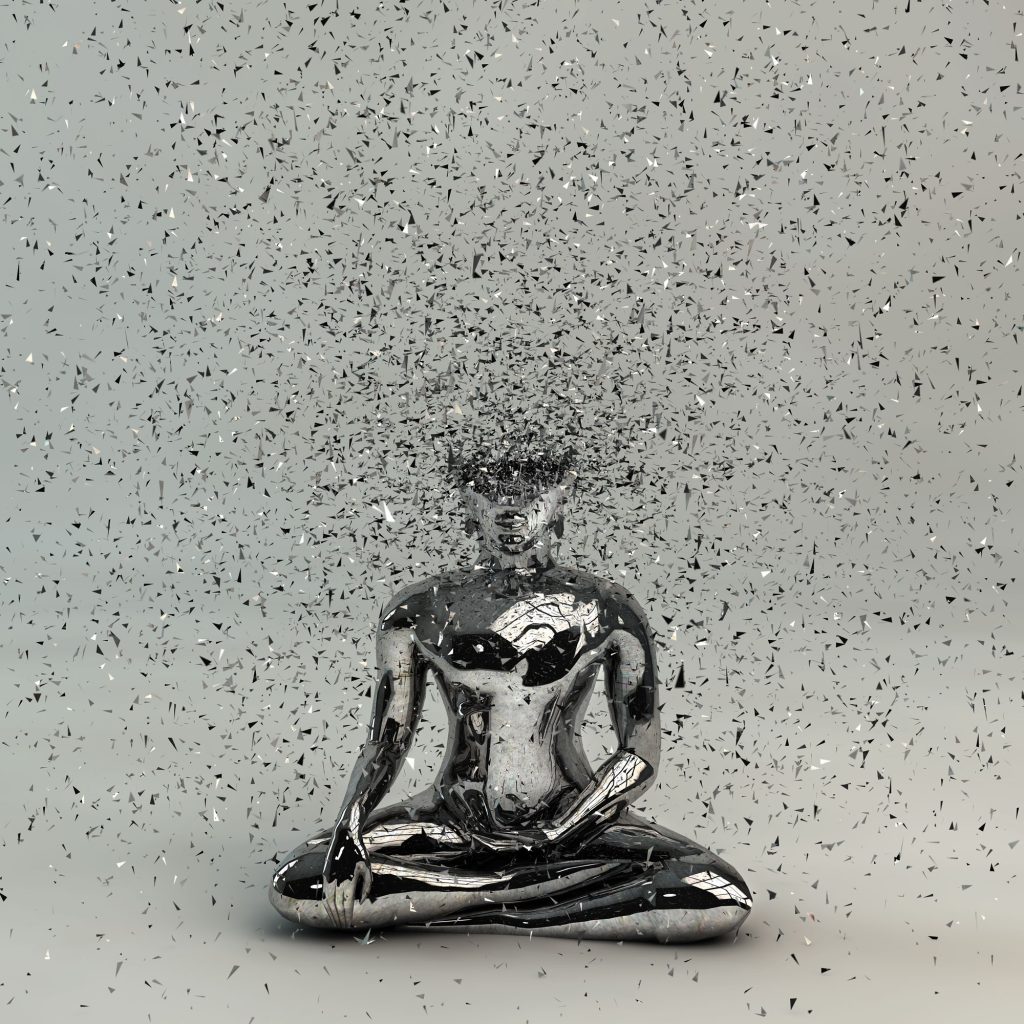It would be an extravagant understatement to say that things have been feeling a bit shaky lately. Global politics, global warming, global unrest—the daunting list goes on. A persistent anxiety has crept into nearly every aspect of our lives.
On the one hand, this can all feel new, particular to our time and place. On the other hand, the way things are now is nothing other than the way things have always been—uncertainty is just more apparent at some times than others.
From the perspective of the dharma, that conditions are impermanent and constantly subject to change is nothing new and nothing special. Birth is suffering, aging is suffering, death is suffering: life is full of suffering. This is the first noble truth of Buddhism; this is what the teachings have been saying all along. It would be a pity, at a moment when this truth is impossible to ignore, not to use our recognition of it as motivation to finally wake up.
Two of the pieces in the special section that follows, “Hold to the Center!” by Roshi Wendy Egyoku Nakao, and “What to Do When You Don’t Know What’s Next,” by Dawa Tarchin Phillips, illuminate the perennial Buddhist wisdom you can rely on to navigate rocky terrain. They can be drawn on both as a source of comfort and as a catalyst to practice as if your hair were on fire, as the saying goes.
Doing the inner work prepares us to face the immediate external challenges of our time. Our interview with entrepreneur and environmentalist Paul Hawken, “100 Best Climate Solutions—and Why They’re Going to Work,” gives the most cheering prognosis we’ve heard yet for our planet’s future. (You may be surprised to learn that according to Hawken, it’s the private sector that will turn the tide.) In “Dialogue across Difference,” Zen priest Kurt Spellmeyer and Muslim activist Sofia Ali-Khan reflect upon the global rise of nativist movements, which have turned people’s fear into an impulse to attack those who are most vulnerable in our society: immigrants and minorities. And in “Camp Dharma,” scholar Duncan Ryuken Williams lifts the veil on the experience of the Japanese Americans who were interned during World War II, reminding us that American Muslims are not the first population to be singled out by the United States government.
Taking both a step out of and a step into the situation at hand: this is how we at Tricycle understand the Buddhist view of how to get through these times. It is a balancing act, and one that guides us through this section.
Neither paralyzed by despair nor hiding our heads in the sand, we engage the world with empathy and integrity while knowing that even the end of the world might not be the end after all, an idea that Douglas Penick explores in his lyrical essay “A World Ever at Its End.” Engagement requires the very qualities that we have been cultivating and refining as practitioners: compassion, clear seeing, and—perhaps most of all—courage.
These are tough times. May the contributions in this special section help you find a clear path through them.
Table of Contents
“Hold to the Center!” by Wendy Egyoku Nakao Roshi
“What to Do When You Don’t Know What’s Next,” by Dawa Tarchin Phillips
“100 Best Climate Solutions—And Why They’re Going to Work,” an interview with Paul Hawken
“Dialogue Across Difference,” a conversation with Kurt Spellmeyer and Sofia Ali-Khan
“Camp Dharma,” an interview with Duncan Ryuken Williams
“A World Ever at Its End,” by Douglas Penick
Thank you for subscribing to Tricycle! As a nonprofit, we depend on readers like you to keep Buddhist teachings and practices widely available.
